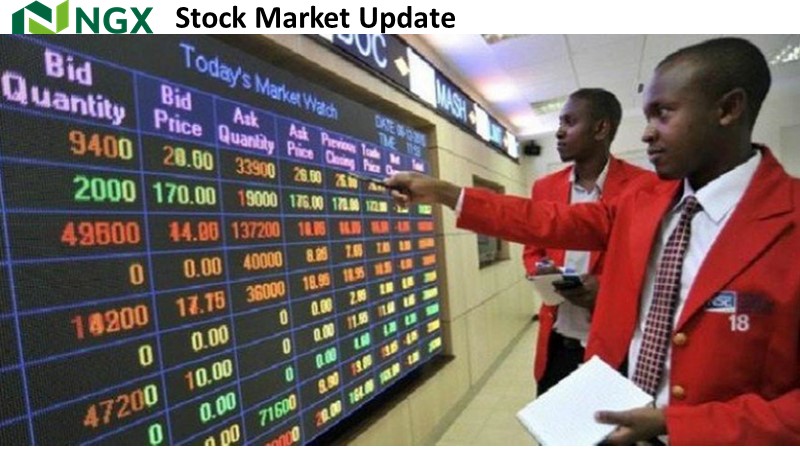Nigeria records N1.88trn trade surplus in Q3 2023, highest since 2018
Nigeria’s total merchandise trade value rose by 47% to N18.80 trillion in the third quarter of 2023, representing an increase of 54.6 percent quarter on quarter from the N12.16 trillion recorded in the prior quarter and a 53.16 percent year-on-year (y/y) increase from the N12.28 trillion reached during the corresponding quarter of 2022.
This is according to the latest National Bureau of Statistics.
The report revealed that within a nine-month period, Nigeria’s total merchandise trade value stood at N43.01 trillion as total exports continue to outperform the total import value at N23.27 trillion and N19.74 trillion to give a net trade balance of N3.52 trillion for the first time since 2018 (N4.49 trillion).
In the face of the surge in total merchandise trade during the period, trade surplus for the period recorded an improvement to N1.88 trillion for the first time since the second quarter of 2018 when Nigeria’s trade surplus hit N2.08 trillion.
This comes as export earnings outweigh the surging import bills to maintain the uptrend in the total trade balance for the fourth consecutive quarters since Q3 2022 after the N409.4 billion recorded in trade deficit at that time.
The trade earnings was largely driven by a considerable increase in trade activities within the period and comes as total export trade during the period was dominated by crude oil exports valued at N8.54 trillion which accounted for 82.5 percent of total exports while the non-crude oil exports was 1.81 trillion and then the non-oil export products contributed a 6.55 percent (N677.6 billion) to the total exports.
On the other hand, the value of imports widened further to N8.46 trillion in the third quarter of 2023 and was primarily dominated by mineral fuels import amounting to N2.85 trillion (33.72 percent of total imports), trailed by machinery and transport equipment with N2.32 trillion (27.31 percent of total imports) and Chemicals & related products worth N1.07 trillion (12.65 percent of total imports).
Analysis by trading partners in Q3 2023 by exports, shows that Spain recorded the highest exports from Nigeria with a value of N1.27 trillion or 12.31 percent of the country’s total exports, this was followed by India with N1.02 billion or 9.81 percent, The Netherlands with N988.66 billion or 9.56 percent, Indonesia with N758.59 billion or 7.33 percent, France with N720.45 billion or 6.96 percent of total exports.
In total, exports to the top five countries amounted to 45.98 percent of the total value of exports.
However, analysis by traded products shows that the largest export value in the third quarter of 2023 remained Petroleum oils and oils obtained from bituminous minerals, crude with N8.54 trillion representing 82.50 percent.
This was followed by Natural gas, liquefied with N1.02 trillion accounting for 9.82 percent, and Urea, whether or not in aqueous solution with N109.68 billion or 1.06 percent of total exports.
Similarly, data on trading partners by imports during the review period, highlights the top five partner countries of origin for imports to Nigeria was China (N1.97 trillion or 23.33 percent), followed by imports from Belgium with N996.65 billion or 11.78 percent, India with N802.07 billion or 9.48 percent, Malta with N561.37 billion or 6.64 percent and the United States of America with N502.92 billion or 5.95 percent of total imports.
The values of imports from the top five countries amounted to N4.84 trillion representing a share of 57.18 percent of total imports.
“IN TOTAL, EXPORTS TO THE TOP FIVE COUNTRIES AMOUNTED TO 45.98 PERCENT OF THE TOTAL VALUE OF EXPORTS.”
The commodities with the largest values of imported products were Motor Spirit Ordinary valued at N1.92 trillion or 22.71 percent, Gas oil with N736.66 billion or 8.71 percent and Durum wheat (not in seeds)’ with value amounting to N331.76 billion or 3.92 percent of total imports.
Meanwhile financial analysts have attributed the upswing in trading activities during the period to a resilient export performance induced by increase in crude oil export.
Commenting on the performance, Researchers from Cowry Assets Management Limited said, “This surge is buoyed by favourable global oil prices exceeding $90 per barrel during the period, coupled with a slight increase in domestic and condensate production, reaching an average daily output of 1.45 million barrels per day.
“This production level surpasses the daily average observed in Q3’22 by 0.25 million barrels per day and exceeds Q2’23 figures. Contributing factors include a moderation in pipeline vandalism and oil theft, attributable to ongoing repairs and maintenance at crucial oil facilities, and the recent removal of fuel subsidies.
“The emergence of a net trade surplus in Q3’23 is a noteworthy deviation from previous quarters, underscoring Nigeria’s trade resilience amid global economic shifts.”
Expatiating on the relationship between the report and recent government policy pronouncements, the researchers said, “This positive development is intricately linked to the impact of recent currency devaluation, strategically employed to enhance the competitiveness of the country’s exports.
“The weakened domestic currency, in tandem with robust global oil prices, has positioned Nigeria favourably, potentially stimulating export volumes as a response to escalating import costs. In essence, the Q3 23 trade landscape reflects a convergence of factors, including resilient crude oil exports, improved global oil prices, increased production, and strategic economic measures, collectively shaping Nigeria’s adaptive response to the intricate dynamics of the global economic landscape.”


